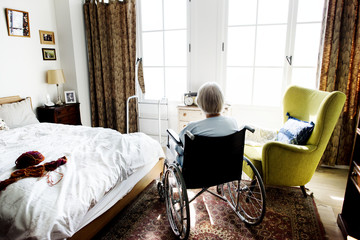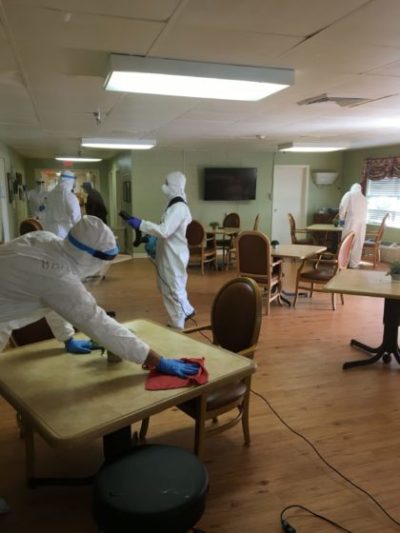Georgia is second to last among states in conducting comprehensive inspections of its nursing homes, according to a federal report.
More than 90 percent of Georgia nursing homes had gone without a thorough inspection for at least 16 months as of May 31, the report found.
Federal health agencies require these “standard surveys’’ to be done at least every 15 months to make sure the nursing homes are meeting federal requirements.

Georgia’s inspection backlog is 93 percent of facilities, and only Connecticut’s is worse, according to the report from the U.S. Department of Health and Human Services’ Office of Inspector General.
States are required to send survey teams into nursing homes on behalf of the federal Centers for Medicare and Medicaid Services (CMS).
Recertification inspections are thorough reviews of a nursing home’s operations by trained teams. They are typically conducted over a four-day period.
“The longer that facilities don’t have surveys, the more residents are at risk for abuse and neglect,’’ Melanie McNeil, state long-term care ombudsman, said Tuesday. “No one is holding facilities accountable. It’s easier for bad things to happen.’’
If wound care is not done properly, McNeil added, “residents physically suffer.’’
Georgia’s fiscal year 2022 budget, which went into effect at the beginning of July, contains more than $12 million to beef up the inspection workforce and conduct more timely reviews of nursing homes.
The state’s Department of Community Health (DCH), which regulates nursing homes, said this week in a statement that the agency is using current staff inspectors, as well as outside vendors, to reduce the backlog of nursing home surveys.

DCH said it’s also “implementing recruitment and retention strategies to assist in filling vacant survey positions in the program.’’
Kathy Floyd, executive director of the Georgia Council on Aging, pointed out that state lawmakers have required reports on inspection progress twice a year.
“The first report due at the end of this year should be made public so advocates and families can see if the improvements are being made,’’ Floyd said. “The [inspector general] report shows that upgrades are urgent.’’
The disruption caused by COVID
States’ backlogs grew substantially during the COVID-19 pandemic, the report said.

In March 2020, to protect public health amid the pandemic, CMS suspended standard surveys in nursing homes. The federal agency authorized states to resume the inspections that August.
But the inspection backlogs grew even after the suspension was lifted, the report said.
Nationally, 71 percent of nursing homes had gone at least 16 months without a standard survey as of May 31, according to the report.
The pandemic clearly devastated long-term care facilities. In Georgia, more than 4,000 residents of such facilities died from COVID-19.
Devon Barill of the Georgia Health Care Association, which represents nursing homes, said it’s understandable that it would take some time for the state to return to a pre-pandemic schedule of surveys.
She added that the state has conducted infection control surveys since March 2020, focusing on COVID.
The state’s health care facility division “has not been immune to the pandemic’s significant impact on workforce and capacity, and their ability to conduct standard surveys has been impacted,’’ Barill said.

